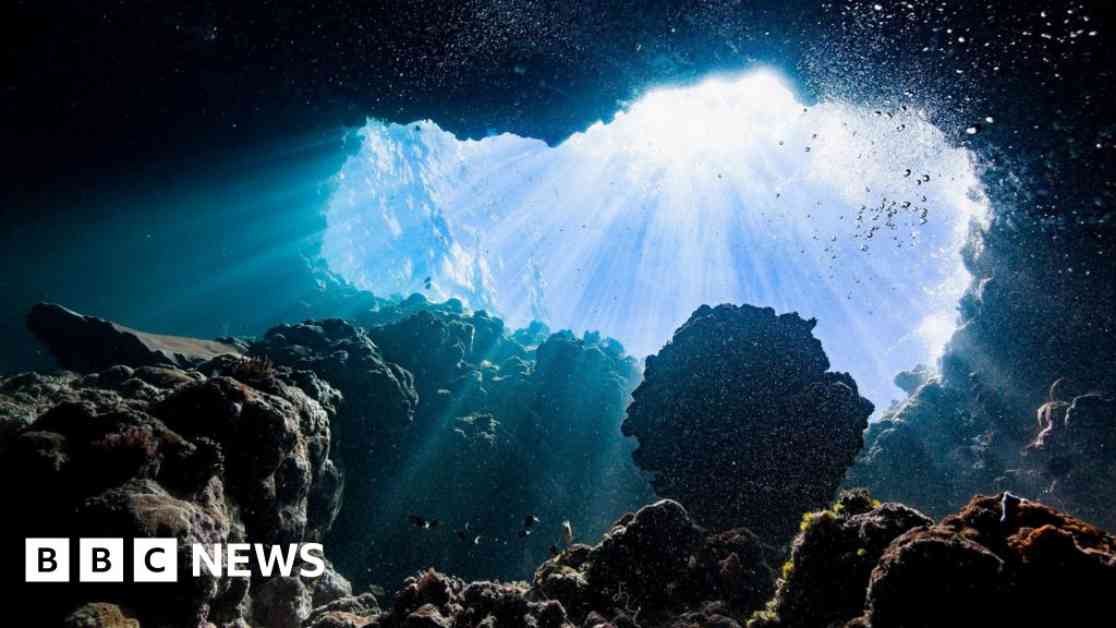Scientists have made an astonishing discovery in the deep ocean – the production of “dark oxygen” by metal nodules on the seafloor. Previously, it was believed that oxygen could only be produced through photosynthesis by marine plants in the presence of sunlight. However, researchers found that at depths where sunlight cannot penetrate, these metallic nodules split seawater into hydrogen and oxygen, creating oxygen in complete darkness.
The lead researcher, Prof Andrew Sweetman, first observed this phenomenon in 2013 and was initially skeptical due to the established belief in oxygen production through photosynthesis. However, further research conducted between Hawaii and Mexico revealed the presence of these metal nodules that act like batteries, generating oxygen through a process similar to electrolysis of seawater.
The discovery of dark oxygen raises concerns about the impact of deep-sea mining activities on this newly identified oxygen production process. Many mining companies are interested in collecting these metal nodules due to their high concentration of valuable metals like lithium, cobalt, and copper. However, disturbing these nodules could disrupt the oxygen production and potentially harm marine life that depends on it.
The researchers conducted experiments in the lab to measure the electric currents produced by the nodules, which were found to be comparable to those generated by AA-sized batteries. This battery-like mechanism of oxygen production without the need for sunlight or biological processes could have implications for understanding oxygen-rich environments on other planets and moons where life could exist.
Despite the potential benefits of extracting valuable metals from the nodules, there are growing concerns about the environmental impact of deep-sea mining. The Clarion-Clipperton Zone, where the discovery was made, is already being targeted by mining companies, prompting warnings from organizations like the US National Oceanic and Atmospheric Administration (NOAA) about the destruction of seabed habitats.
Over 800 marine scientists from around the world have called for a pause on deep-sea mining activities to assess the risks involved. Prof Murray Roberts from the University of Edinburgh emphasized the need to understand the ecosystems supported by these nodules before proceeding with mining operations that could have far-reaching consequences.
While the discovery of dark oxygen opens up new possibilities for understanding deep-sea ecosystems, it also underscores the importance of responsible environmental stewardship when considering industrial activities in these fragile habitats. Further research and data collection will be essential to ensure that any future deep-sea mining efforts are conducted in a sustainable and environmentally friendly manner.












